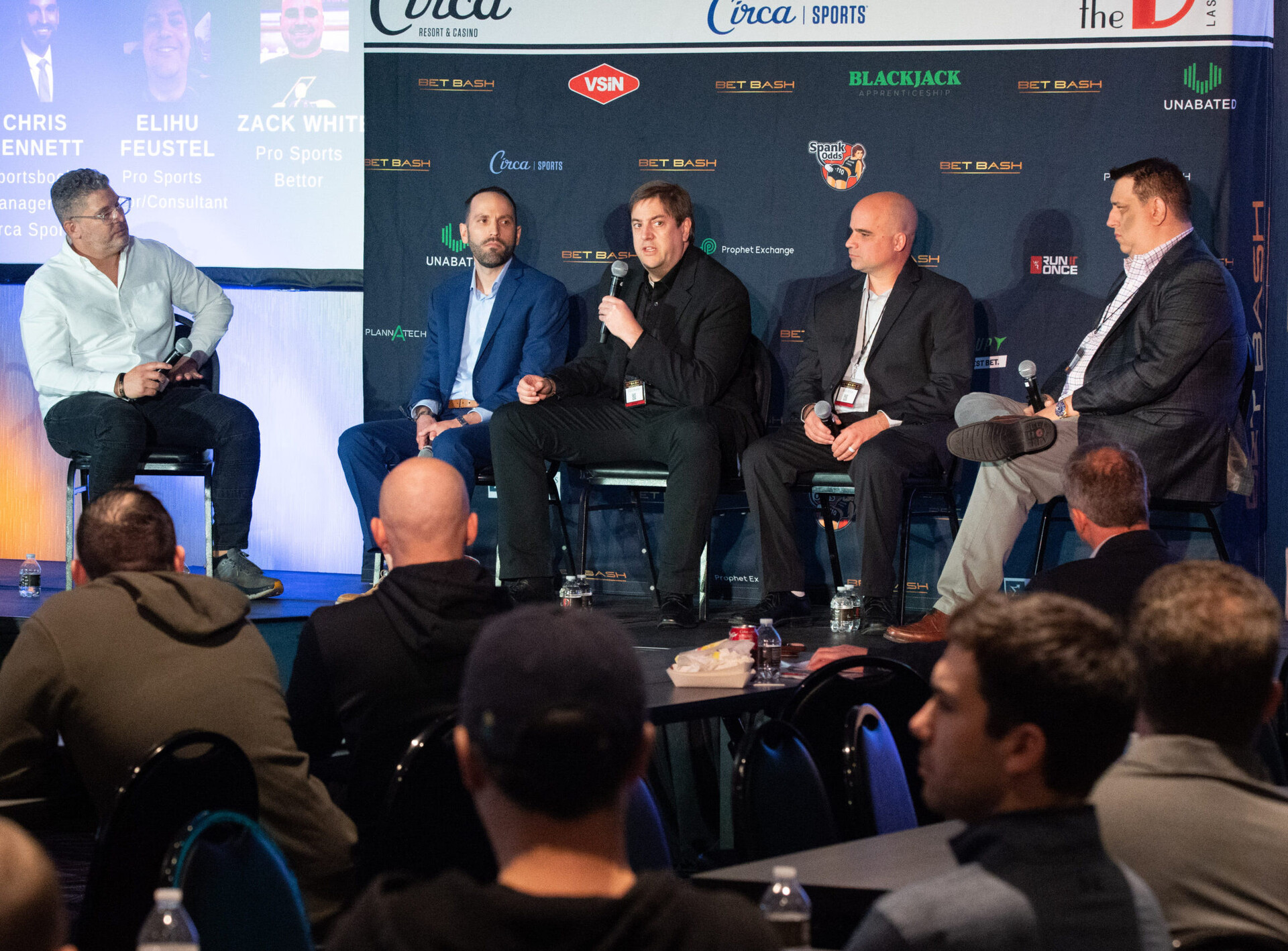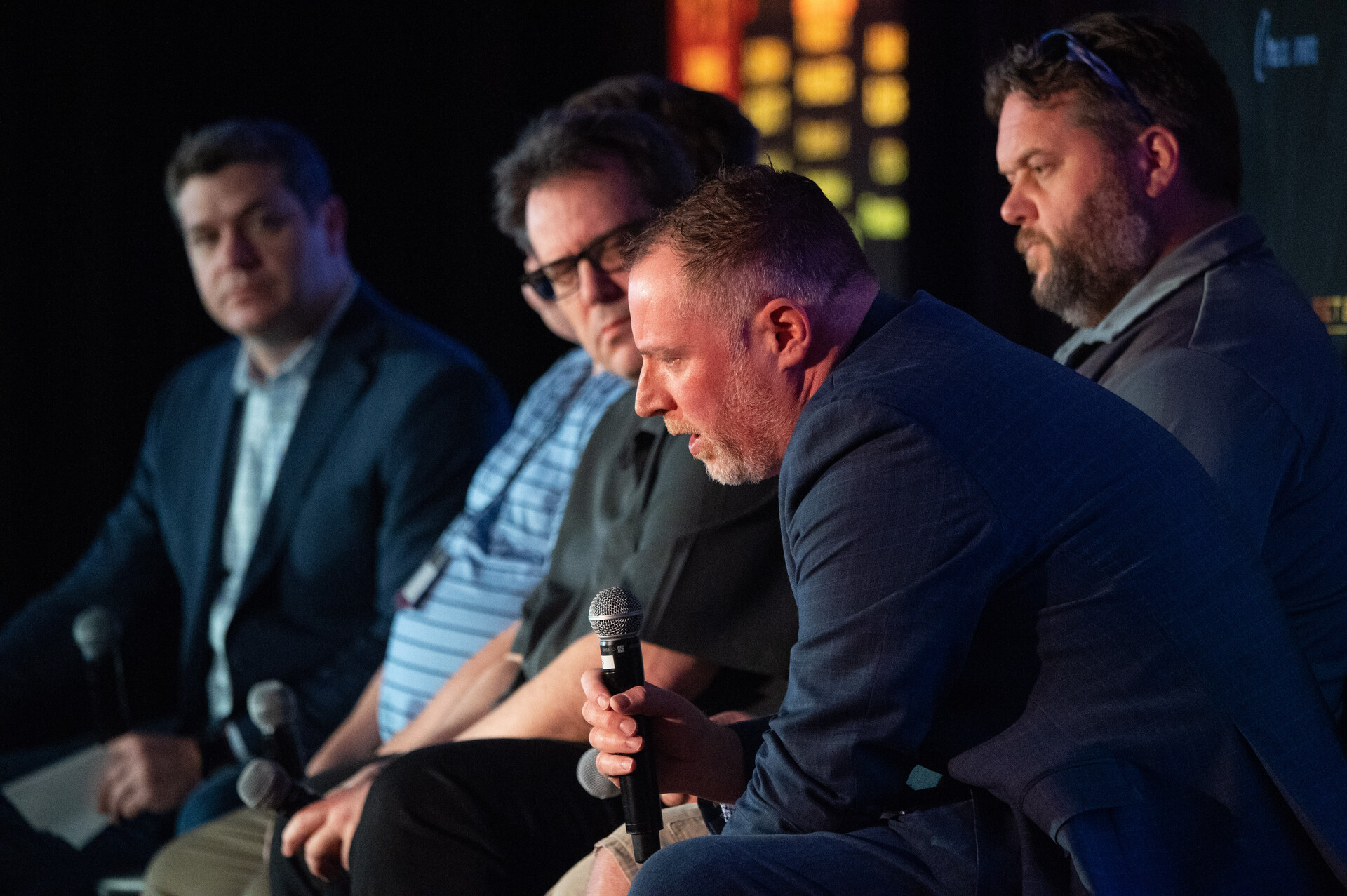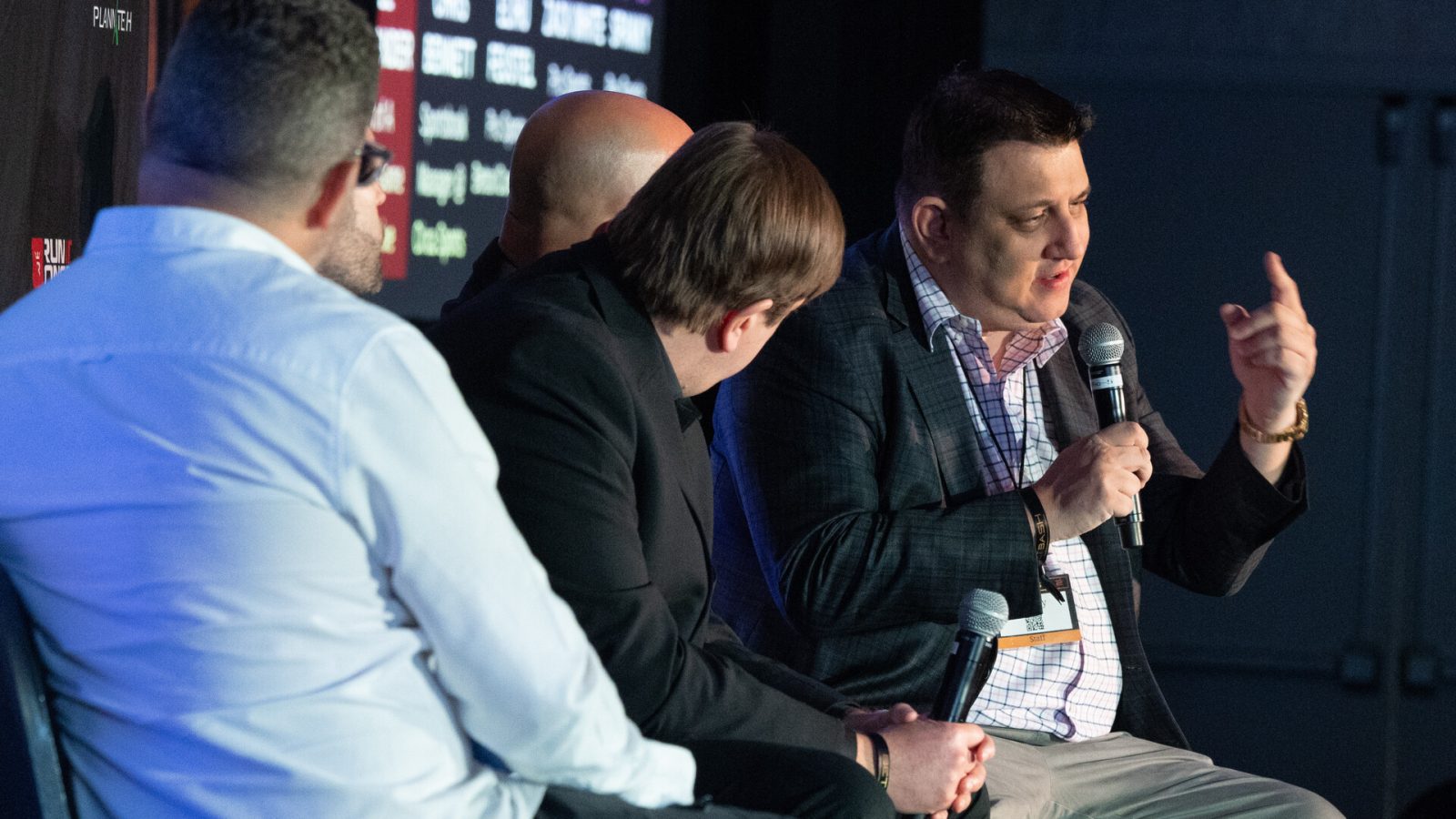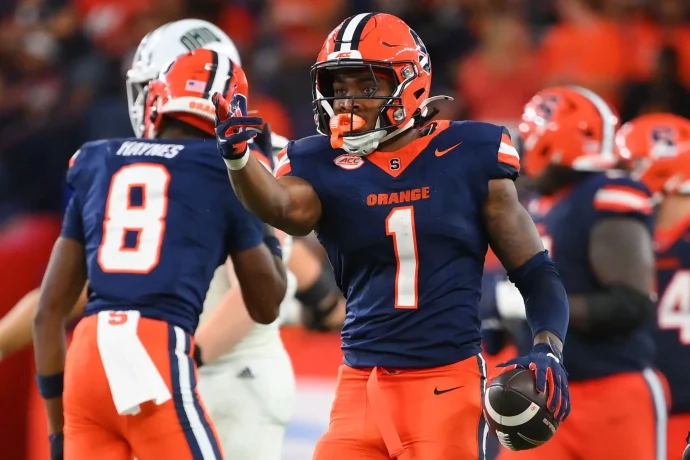Some of the biggest names in the sports betting industry converged on downtown Las Vegas over the weekend for Bet Bash 2 at Circa and The D Las Vegas.
The brainchild of the professional bettor known simply as Spanky, Bet Bash 2 offered bettors and industry figures an opportunity to network and trade ideas during multiple panel discussions, social gatherings and Final Four watch parties.
Props.com attended Bet Bash 2 and shares some highlights from Sunday’s expert panel discussions presented before hundreds of attendees at The D Las Vegas.
The Art of Sports Betting

The final panel of the day, titled “The Art of Sports Betting,” provided a look into how pro bettors maintain their accounts and fight back against bookmakers who try to limit them.
Spanky was among the panelists and said that while it might be fun for pro bettors to take an adversarial approach with oddsmakers, that’s not exactly a wise move.
“We have to recognize that we need the bookmakers more than they need us,” he said. “That’s a fact. … If we can’t find places to bet into, then we’re dead.”
Spanky added that he would rather be friends than enemies with bookmakers. That’s why he’s traveled to Costa Rica 17 times to meet with offshore bookmakers, develop a rapport and discuss workable limits for him. “When you establish that relationship, how could they slap you in the face?” he said. “It’s the human thing. They’ll treat you with respect.”
One way for bettors to show bookmakers respect: When they spot a line mistake, inform the folks on the other side of the counter rather take advantage of them.
That said, some oddsmakers simply don’t like to play ball, and they’re the ones putting up the adversarial wall. When that happens, he says he resorts to aggressive tactics. This includes using “beards” to have access to multiple accounts, then making “dummy” moves within some of those accounts to set up bets the other way for other accounts.
“If you’re going to treat me like crap — if you’re going to limit me to $2.57, because you don’t want to deal with me — well, you’re going to deal with me,” he said.
To Parlay or Not To Parlay?
There’s a consensus philosophy in the sports betting community when it comes to parlays: If you want to make a consistent profit betting sports, stay away from parlays. Panelist and pro bettor Elihu Feustel offered a counterargument to that blanket theory, detailing three reasons to play parlays. First, some correlated parlays make smart business sense — for instance, tying a big college football favorite to the Over — because the positive expected value exceeds that of making two straight bets.
Second, playing parlays can throw oddmakers off a pro bettor’s scent. “Sportsbooks generally think parlay bettors are idiots,” he said. “That’s going to help your account last longer.”
Third, Feustel detailed the benefit of using 20 or 25 teams in a round-robin parlay by threes. If these are all winning plays, he argued, bettors will actually make more money in the long run and experience less volatility. “And when most traders sees a 25-team round robin, they laugh,” Feustel said. “They make a note, ‘Low-functioning moron,’ on your account.”
Ethics in Sports Betting

Sunday’s first panel, titled “Ethics of Sports Betting,” discussed what, if anything, sportsbooks and bettors owe each other.
Like Spanky later in the day, pro bettor Alan Boston said he felt a responsibility to inform books of obvious mistakes, noting that he didn’t think the bettor-bookmaker relationship had to be confrontational.
Speaking to that point, Circa sportsbook director Matthew Metcalf said he often errs on the side of the bettor in most disputes because an “obvious mistake” is difficult to define.
The “Ethics of Sports Betting” panel also included DraftKings director of sportsbook operations Johnny Avello and pro bettor Chris Bruno. Everyone on the dais agreed that one betting tactic is out of bounds: past posting, or making a bet after an event had already started.
During the session’s Q&A portion, Avello was asked about DraftKings reducing the wagering limits of customers who have too much success. He acknowledged that it wasn’t how he wanted to do business.
“I sympathize with you. That’s all I can tell you,” Avello said. “I don’t think it’s correct. I work hard to try to [eliminate] this. But, hey, I’m one guy in a big company, and we have a lot to learn. Hopefully, things will get better over time.”
The Art of Bookmaking

Questions about the relationship between bettors and sportsbooks also dominated the panel titled “The Art of Bookmaking.”
Jason Scott, director of trading at BetMGM, said bettors frustrated at being limited need to pressure regulators to install minimum bet levels, because operators were unlikely to do so on their own.
Scott added that he’s dealt with a customer operating 270 separate accounts. Tactics like that force a sportsbook to take measures to protect itself. He also joked with panel moderator Doug Kezirian about an incident last year when Kezirian reportedly won nearly $300,000 from BetMGM on a mispriced NFL Draft prop.
“We make mistakes on prices,” Scott told Kezirian. “There was a famous one from last year’s NFL Draft. You might have heard about that.”
Scott added that pro bettors who complain about being limited need to face reality: They represent only a tiny portion of the sports betting population.
“Something that won’t be very popular in this room: 99.9 percent of our customers aren’t aware of [the limiting issue],” he said. “They aren’t reading that part of Twitter.”





